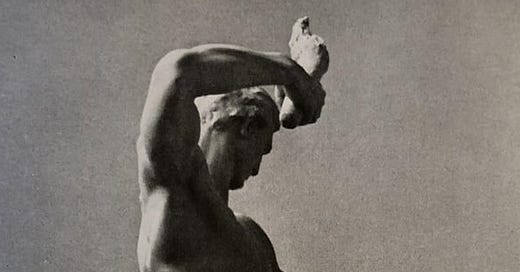“You should always look on human life as short and cheap.”1
In succession of each other the human animal, human society and human interactions of technology or economics are all ‘living’ things. Hence, they are all driven to attempt survival and propagation through reinforcement and mutation. That which is propagated in the individual human is their genetic qualities which influence their development physically and mentally. Originally, Galton was deliberately quite vague when defining what he meant by “eugenics”: “the science which deals with those social agencies that influence, mentally or physically, the racial qualities of future generations.”2 But, this entomology does reveal the normative preferences of those who defined it. The word “eugenics” being derived from the Ancient Greek “eû” (well/good) and “genḗs” (to come into being/born). The ‘oughts’ of eugenics posit that if this is the case we should use our capabilities as a wider humanity to inhibit those qualities we find ‘desirable’ and disinhibit (or negate) that which propagates ‘undesirable’ qualities.3
It is at this point, with the potential politics and practicalities of such an enterprise entering the reader’s mind, that we must make an important distinction. That of positive and negative eugenics:
Positive Eugenics - The encouragement and facilitation of the propagation and preservation of innate qualities which are deemed ‘desirable’.
Negative Eugenics - The disencouraging and negation of the possibilities of innate qualities which are deemed ‘undesirable’.
It will be clear to the acute reader that in the current zeitgeist this distinction is rarely accounted for, much less known about. Like all moralism, the thinking on the subject has been incredibly retarded by conceptual blindspots. The ‘spooky’ practice of eugenics does not need involve the harshness of sterilization, abortion and extermination. But, instead, a truthful engagement with the naturally eugenical and dysgenical systems of nature. Ethics could perhaps indeed be preserved while man accelerates into his highest state through the philosophical energy of positive eugenics. Simple economic, social and practical incentive can be dispensed in a positive manner upon those qualities which are desired of a local or global stock, without the need to engage in the extremism of negative eugenics.
It’s also important to note that eugenical praxis can be conceptualized devoid of a substantive view on the importance of ‘genes’ or opinions on the ‘nature-vs-nurture’ argument. For the philosophical flexibility this grants our study I have avoided the use of scientific language such as “genetic” in my definitions. Although this does not jettison the inherently evolutionary framework that underlies eugenics as an idea. “Any endevour to improve progressively the mental and physical qualities of mankind must, consciously or unconsciously, model itself on some theory of Evolution.”3 This is, however, independent of the substantive material or epigenetic factors which allow any approach to the the eugenical dynamic to work on a practical level To give an example, a sound eugenics approaches the biological substrate in the same way the actual functioning of a computerized genetic algorithm approaches the means to achieve the fitness function: agnostically.
Aurelius, M. (2014). Meditations. Translated by Hammond, M. and Clay, D. London: Penguin Classics. p.32
Galton, F. (1906). Eugenics. Sociological Papers Vol II, The Sociological Society. New York: Macmillan. p.3
Schuster, E. (1912). Eugenics. London & Glasgow: Collins’ Clear Type Press. p.82




